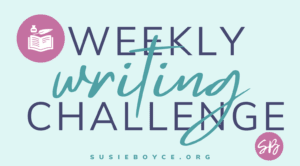Published for KSL.com. Click HERE for the link.
One of the many dreams I have for my kids is that they avoid brain rot whenever possible. Hence, I have instituted several anti-brain-rotting measures over the years. Some have proven more successful than others, but in the interest of my kids’ brains, I keep trying.
Without taking the time to do extensive research, I’m pretty sure that too much screen time can cause brain rot. So I made a list of requirements that my kids must finish before any screen time is allowed. According to my kids, this list is grounds for notifying Child Protective Services since it contains such grueling tasks as scrubbing toilets, practicing piano and doing homework.
But reading seems to be the most taxing item on the list. My kids assert that school already requires so much reading that their brains are rendered useless by the time they get home.
I respectfully disagree.
A few years ago, my 8-year-old son took covert action in hopes of circumventing my reading rule. I was gone during his alleged reading session, so when I returned home he ran up to me and breathlessly declared, “Mom, I’m done reading! Can I play the Wii now?”
This kid is usually a stand-up guy and I hated to suspect otherwise, but I dug a little more and asked, “For how long?”
“A long time, Mom. A really, really long time!”
His smile was too big. I wasn’t buying it.
“OK then, show me what you read.”
Donning the huge, innocent eyes of an animated Disney character, my son disappeared briefly and reappeared with a book in hand, “I read the whole thing!”
It happened to be Disney’s storybook version of “The Jungle Book,” which was on his reading level and would have been a believable story except for a teeny detail.
The familiar cover illustration lured my son in, so he failed to look closely at the title, which read, “Das Dschungelbuch.” He hadn’t taken into account the fact that I am a former English and German teacher, meaning we have German books mixed in with the English ones on our shelves.
It was comically painful to watch his face when I opened the book and asked him to read the first page. Poor guy. So much for covert action.
Since I can’t remember a time in my life when I didn’t love to read, it has baffled me when my kids aren’t delighted at the chance to read. I’ve had to come to terms with the fact that my kids are not my clones in the reading category (or almost any other category, for that matter).
Nevertheless, I continue to fight the good fight. The reading fight, that is. I find myself constantly thinking and strategizing and researching entirely outside of what I used to think of as my fairly comprehensive “reading” box. Some tactics prove more successful than others, but in the interest of my kids’ brains, I keep trying.
I wouldn’t mind if some of my kids turn into book nerds like me. Truthfully, though, I would never truly want them to be my reading clones (or my clones in any other category, for that matter).
In the end, it’s really about dreams.
If my kids can become successful readers, their dreams of becoming athletes and artists and comedians and paleontologists and kindergarten teachers are far more likely to become realities.
Of all my dreams I have for my kids, my fondest one is to help their dreams come true. So I’m committed to doing everything it takes — anti-brain-rotting measures included — to launch them as high and as far as possible in the right direction.
Note: Susie will be presenting at Utah Valley University’s “For the Love of Reading” conference, Feb. 17-18 at the Zermatt resort in Midway. The conference provides an opportunity for parents, grandparents, teachers and librarians to hear from and speak with some of the top literacy specialists in the country. Check out their website (http://uvuengagedreading.org/) for more details and to register.











